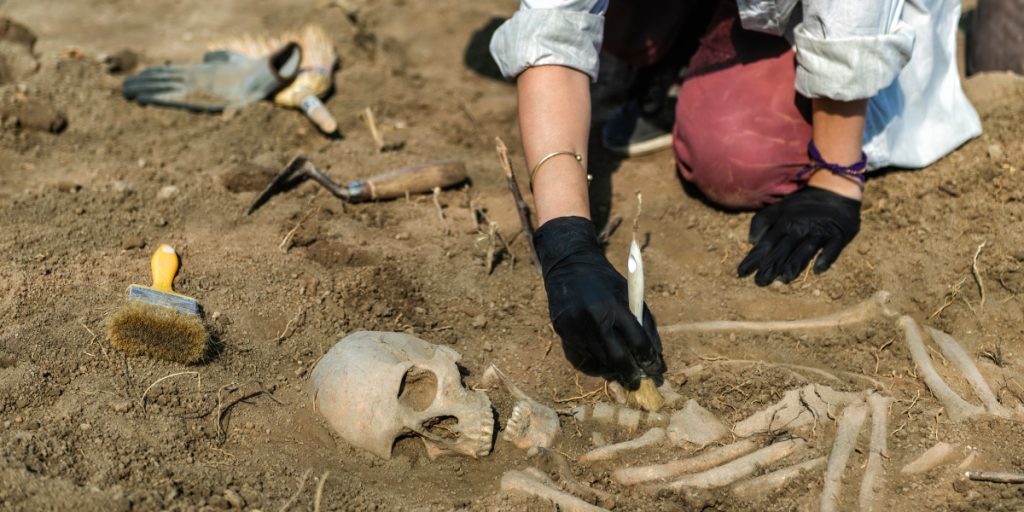Unlocking Human History: Pursuing an MSc and BSc in Anthropology

Understanding Anthropology
Why Choose a Career in Anthropology?
- Diverse Career Paths: Opportunities in academia, research, cultural resource management, public policy, and international organisations.
- Global Perspective: Study different cultures and societies, providing insights into global diversity and human behaviour.
- Critical Skills: Develop analytical, research, and communication skills applicable in various professional contexts.
- Impactful Work: Contribute to the preservation of cultural heritage and the understanding of human history and societal development.
Anthropology Courses in India
BSc in Anthropology
A Bachelor of Science in Anthropology offers foundational knowledge in various subfields of anthropology, including cultural, biological, linguistic, and archaeological anthropology.
Eligibility Criteria:
- Completion of 10+2 with a focus on science or social science subjects.
- Minimum aggregate score as specified by the university (usually around 50-60%).
Course Structure:
- Duration: 3-4 years (6-8 semesters)
- Core Subjects: Human evolution, cultural anthropology, archaeological methods, and linguistic anthropology.
- Practical Training: Fieldwork, laboratory sessions, and research projects.
Program Highlights
- Interdisciplinary Curriculum: Broad coverage of various anthropological disciplines.
- Fieldwork Opportunities: Hands-on experience through field trips and research projects.
- Career Support: Guidance and support for pursuing careers in anthropology or further studies.
MSc in Anthropology
A Master of Science in Anthropology is designed for students who wish to specialize and gain advanced knowledge in anthropology.
Eligibility Criteria:
- Bachelor’s degree in anthropology or related fields (e.g., sociology, history, biology).
- Minimum aggregate score as specified by the university (usually around 55-60%).
Course Structure:
- Duration: 2 years (4 semesters)
- Core Subjects: Advanced topics in cultural anthropology, human osteology, ethnographic research methods, and applied anthropology.
- Research Project: Mandatory thesis or dissertation based on original research.
- Internships: Opportunities for practical experience in research institutions or cultural organizations.
Program Highlights:
- Specialized Training: Focus on advanced anthropological theories and methodologies.
- Research Opportunities: Engage in significant research projects, contributing to the field.
- Career Advancement: Preparation for leadership roles in academia, research, and applied anthropology.
Course Locations
Rayat Bahra University, Punjab
Rayat Bahra University is renowned for its comprehensive anthropology programs, offering both BSc and MSc degrees. The university provides an excellent academic environment with state-of-the-art facilities.
Facilities:
- Modern Laboratories: Equipped with the latest tools for anthropological research and study.
- Extensive Library: Access to a vast collection of anthropological literature and research materials.
- Fieldwork Support: Facilities and resources to support extensive fieldwork and research projects.
Course Offerings:
- BSc in Anthropology
- MSc in Anthropology
Bahra University, Himachal Pradesh
Situated in the picturesque hills of Himachal Pradesh, Bahra University offers a tranquil and conducive environment for studying anthropology. The university is committed to providing high-quality education and research opportunities.
Facilities:
- Advanced Research Labs: Well-equipped labs for biological and archaeological anthropology.
- Experienced Faculty: Guidance from experienced anthropologists and researchers.
- Field Studies: Strong emphasis on practical training and field studies.
Course Offerings:
- BSc in Anthropology
Internship and placement opportunity
- UNESCO: Opportunities for internships in cultural heritage and preservation projects.
- Museums and Archaeological Sites: Internships at national and international museums and archaeological sites.
- NGOs and Cultural Organisations: Placements in NGOs focusing on cultural preservation and social development.
Career Prospects After Anthropology
Graduates with a degree in anthropology have diverse career opportunities. Some of the prominent roles include:
- Cultural Anthropologist: Working in research, cultural resource management, or policy-making.
- Archaeologist: Conducting excavations and research on historical sites.
- Academic: Teaching and conducting research in universities and colleges.
- Public Health Anthropologist: Working on health-related projects in various cultural contexts.
- Museum Curator: Managing collections and exhibitions in museums.
- Biological Anthropologist
- Molecular Anthropologist
- Human Geneticist

